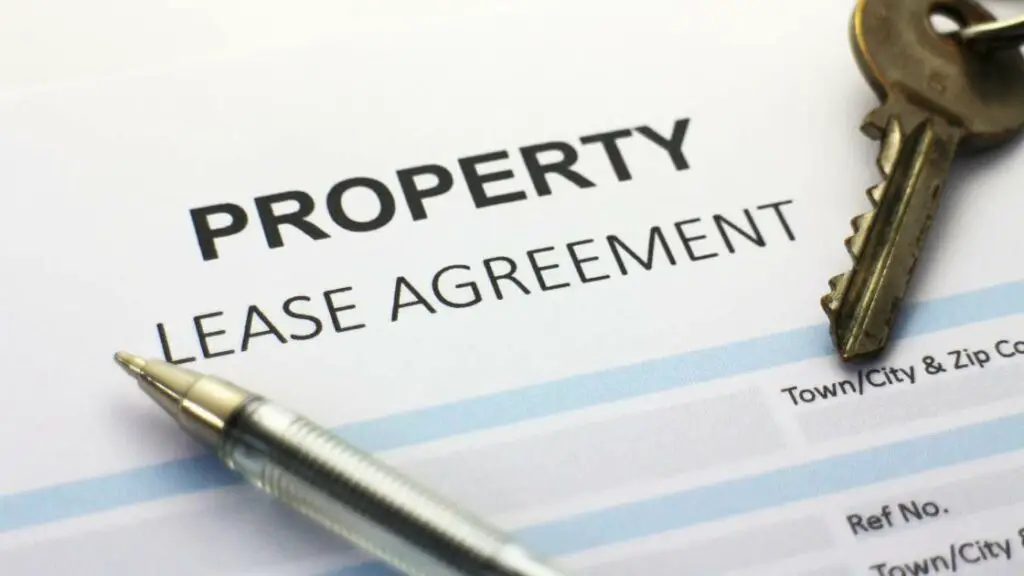If you have broken your door and are wondering if you can evicted for doing so, you are in the right place.
It’s a valid concern – especially if your landlord is the type that will take a hard line about such things.
In this article, I am going to answer the question of whether you can get evicted for breaking your door and the legal landscape around this issue. I’ll cover key steps you need to take to get to the answer and provide some tips on how to deal with the situation.
If you don’t have the time to read through it all, here’s a short answer to the question:
As a general matter, you can get evicted for a broken door if you are at fault and refuse to pay. But eviction is an extreme reaction – most landlords will want to resolve it without going through that. Keep in mind that any eviction must comply with applicable laws, including, advance written notice of the eviction, a chance to cure, and an opportunity to argue your case in court.
Ok, let’s get into it.
The information contained in this post is for informational purposes only. It is not legal advice. You should seek the advice of a qualified legal professional before making any decisions relating to the topics covered by this article.
We may earn commissions from products and services that are purchased or recommended through our website as part of our affiliate partnerships. As an Amazon affiliate, we may earn from qualifying purchases.
What Does Your Lease Say?

Your lease is the defining contract between you and your landlord governing the rental arrangement, so it should be the first place you look.
Now in all likelihood, your lease will not state in specific terms anything about fixing doors or getting evicted if you break a door. It will usually have more general provisions around maintaining the premises in good working order or something to that effect.
For example, in my standard lease (I have been a landlord for over a decade and own many rentals) it states that the landlord is responsible for repairs that are not due to the fault or negligence of the tenant.
So, under that lease, if your door breaks because someone tried to break in, that is something that the landlord would pay for.
But the lease also goes on to state that the tenant is required to pay for any repairs needed due to deliberate, accidental or negligent acts or omissions of the tenant, tenant’s family, guests, employees or pets.
So if the tenant abuses the door in some way and causes it to malfunction, that would be on the tenant.
As you can see (at least in my lease) the responsibility for repair is governed by whether the tenant is at fault. If they are, the tenant pays, if they’re not, the landlord pays. I call it the rule of fault.
Now it is very important to note that the mere fact of a door breaking is not a violation of the lease, but if a tenant refuses to pay for repairs that are their responsibility under the lease, that would usually be considered a breach of the contract and grounds for eviction in most states.
Of course, your lease may have different provisions from mine (which is modeled after the rules in my state), so make sure to review it with a critical eye and see what it says about who is actually responsible for repairing or replacing the broken door.
Check Applicable Landlord Tenant Laws

If your lease doesn’t seem to cover this situation or if you think the lease may be at odds with state and local laws, you will want to check the applicable laws in your jurisdiction.
As a general matter, most states seem to follow what I termed “the rule of fault” earlier.
So if the tenant (or someone in their family, under their control, etc.) broke the door, then the tenant would be required to repair the door.
One thing to note is that in some states, a landlord must repair a broken door if it would impact habitability.
For example, if the lock on the door is broken and that compromises the security of the dwelling or if the door is broken in such a way that extreme cold weather could make the place unlivable, then the landlord may be required to fix the door even if the tenant broke it.
But in almost all cases, the landlord could then charge the tenant for the cost of the repair. In fact, most states that deal with this issue have a clear exception for situations where the tenant caused the uninhabitable condition.
If the tenant refuses to pay for damage they caused, then the landlord would be justified in bringing an eviction claim against the tenant.
Again, your jurisdiction’s laws may differ from the laws of other localities, so if you want a definitive answer to what laws apply in your situation you will need to research the applicable laws in your region (or have a lawyer take a quick look for you).
If you prefer to have a lawyer assist you, I would try JustAnswer. They boast access to thousands of highly-rated, verified real estate lawyers whom you can connect with via their unlimited chat service.
By clicking the banner below, you can get a one week trial membership for only $5, which you can cancel at any time.

Eviction Has Rules That Need to be Followed

As I mentioned at the top, even if you are in violation of the lease or applicable law because you broke the door and refuse to pay, a landlord still has to follow the state and local eviction procedures before they can kick you out.
This usually requires written notice to you, an opportunity to fix the violation and a chance to have your day in court. Of course, as with most things, the devil is in the details and different states will have different requirements on evictions.
The bottom line is that you want to avoid eviction if possible. Landlords don’t like them because they can get pricey (lawyers can be expensive for a long drawn out eviction). And tenants don’t want an eviction on their record for obvious reasons.
So try to come up with a reasonable compromise with your landlord before it gets to that point. On that note, let’s turn to some tips you can use to try to resolve a dispute over a broken door (or prevent it altogether).
Tips on How to Resolve This Issue
Be Honest and Communicate Openly
When a door breaks, you want to let the landlord know as soon as possible, especially if it impacts the security of your home.
In most cases, if you can demonstrate that the damage not your fault, the landlord should handle the repairs.
If they’ve been in the business for any length of time, they already know that doors and locks wear out over time (this is called normal wear and tear) and it is their responsibility to replace things as they wear out.
In some cases, where the damage is caused by a thief or some other third party, a landlord’s insurance may cover the cost of the repair.
If the broken door is your fault, then you should be upfront about that too. In most cases, a landlord can tell the difference between a door that is just getting too old vs one that has actually had damage done to it.
If it is your fault, you should offer to pay the cost of repair (or agree to have it deducted from the security deposit). Better that than ruin your relationship with your landlord and potentially face a lawsuit from them.
If you don’t have the money to cover the cost of repair, see if you can work out some sort of payment plan over time. Most landlords understand that a tenant may not have a ton of cash laying around, so they may be willing to work with you.
Use Preventative Measures
My mom was fond of reminding me that an ounce of prevention is worth a pound of cure. It doesn’t take much to prevent damage to your home – you can try to follow these simple steps.
If you have kids, do your best to educate them on taking good care of the home. Don’t let them slam doors, or act reckless with anything that has moving parts in the home.
Similarly, if you notice that the door is getting stuck from time to time, don’t make it a habit of forcing it open – you could be creating more damage to the door by doing so. Contact your landlord when the first symptoms of a problem occur to prevent structural or frame damage to your door.
If you have guests over, try to make keep the gathering in control. Wild parties tend to lead to property damage and accidents, including busted locks and the like.
Being careful with your behavior will keep these types of issues to a minimum and keep your wallet happy.
Conclusion
So there you have it – a detailed look at whether you can evicted for a broken door and some tips on what you can do if you are faced with this situation. Hope this has been helpful and happy renting.

